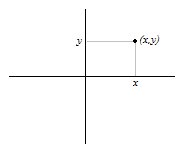... because "what I wish I'd said" must surely turn up on blogs everywhere.
"I've never had sex," I admitted, one drunken night several months back.
"Oh, don't worry," he said. "You're not really missing anything."
I shall pause to give you time to choke at the idiocy of this.
Now I shall perhaps provoke confusion when I admit that my reply was not "Don't be silly" or "That's absurd" - but please remember that "That's
sexist and absurd" is sometimes not an easy thing to say if you want to be taken seriously. So I replied with a heartfelt
"Oh, don't say
that!"
Yeah? Makes sense to me, but it ended up meaning we were having a conversation about whether women can really get anything out of sex.
"Look, we'll ask A__"
A__ (not his real name, or even his real initial, actually; just the first letter of the alphabet) sobered up visibly and thought about the issue. "I think," he said, "... certainly within the context of a loving relationship, women can definitely get something from it, yeah."
Okay, be nice. The generous way to view this is to note that A__ has a long-standing girlfriend and is therefore (hopefully) speaking from experience when providing this counter-example to the idea that women don't get much from sex.
Agreement from the guy who had been speaking to me initially; A__ waffles a bit more and then asks me:
"I dunno - I mean, what do you think, what do you feel?"
A__ is, I suspect, consciously allowing me, as a woman, to define my own experience; he is a nice liberal man who generally tries and, yes, usually succeeds; this conversation does not really show him at his best. However, it is
me who fails at this point.
"I don't
know," I say, and it's true, of course; how could I know, of my own knowledge? "I mean, it's not like I'm waiting for any particularly special moment - I'm just waiting until I feel comfortable." Sufficiently comfortable, anyway; not, like,
comfortable comfortable.
Actually, I'd give anything for a
comfortable comfortable opportunity to have sex. I just don't know when I'll get one.
But look, let's go back.
"Don't sat
that!" Why? Because "you're not really missing anything" is, get this, exactly equivalent to the statement "sorry, Lynet, there is no satisfaction." It's a horrible thought - one of my worst irrational fears, actually. Apparently the man I was speaking to missed the point entirely. He probably honestly doesn't realise how it feels to be a woman in my position. I ought to have corrected his ignorance, but it's hard. It's very personal to talk about these things. Stating it here is an attempt to redress the balance; the best I can do. So let me tell you.
The worst times are when I ovulate. Seriously, at least when I'm getting my period I have a tummyache to distract me*. There have been times when I'm ovulating when I end up lying in bed, drenched in my own sweat and dissolving in my own sexual frustration, trying to masturbate though my clitoris aches 'cause I've been rubbing it too hard - I've been over once already and it's not enough - and when I shove myself up and over into orgasm I spontaneously burst into tears because even as my body shakes I feel as though it's really not doing anything, I still need sex just as badly (oh, gosh, I just burst into tears typing), and it just feels like nothing's going to help, nothing not ever.
*Ovulation and menstruation are the two times when a woman's libido is highest, in general. Most sources say the feeling is stronger on average during ovulation, but it's certainly perceptible at mestruation; sometimes I can tell when my period is arriving by the increased tendency to think about sex.
Now, I'm happy to say that this has only happened to me a couple of times - most months aren't that bad. I mean, there's no time of the month when I don't think about sex at all, and there is
no time of the month when I don't want sex, but, while it's not unusual for ovulation to be a difficult time of the month, I don't always end up crying.
"You're not really missing anything"? NO! Please, please, no! Please, please, please, oh, please,
no! Tell me it isn't true. Tell me it doesn't always feel this bad. Tell me one day I'll be okay in some sense of the word, I know I won't ever be free from sexual desire, but tell me that - I don't know - tell me
something.
I'm crying again.
"In the context of a loving relationship"? Tell that to my cunt. The only thing I need a loving relationship for is to provide a situation in which I can have sex and still trust the person who I am having sex with to respect me. A situation which provides the latter but is not equal to the former would still be fine; I just don't like the idea of someone touching me if he thinks he is degrading me - or increasing his masculine power at my expense - in so doing. The idea makes me sick. Especially when I'm ovulating. And it would hurt me even worse than the sexual frustration that makes me cry.
But I didn't say that at the time.
It's hard to show people a part of yourself that's so very fragile.

